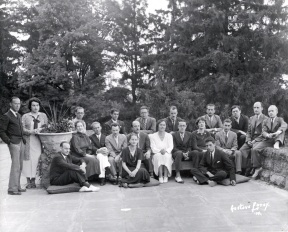The Pleasures of Cheever
Some of you might very frequently pick up a book feeling certain that you will like it. This happens to me pretty rarely; usually only when I’ve read the book already, or when it is by Charles Dickens or Virginia Woolf. So it was with particular relish when, still feeling the pang of having no more of Middlemarch to read, I opened The Wapshot Chronicle by John Cheever.
I’d only read Cheever’s stories, which I really love, whether the earlier perhaps more conventional ones or later so-called experiments like “The Swimmer.” Putting aside the question of whether “experimental” is or is not a troublesome descriptor of any art, I don’t think it fits well with Cheever at any stage in his career. One gets the sense with Cheever that he read widely and deeply, probably heavily in Shakespeare and the classics, took what he found useful and then made sentences that were all his own, without giving any thought to fashion and currency.
Sentences like:
We have all parted from simple places by train or boat at season’s end with generations of yellow leaves spilling on the north wind as we spill our seed and the dogs and the children in the back of the car, but it is not a fact that at the moment of separation a tumult of brilliant and precise images–as though we drowned–streams through our heads. We have indeed come back to lighted houses, smelling on the north wind burning applewood, and seen a Polish countess greasing her face in a ski lodge and heard the cry of the horned owl in rut and smelled a dead whale on the south wind that carries also the sweet note of the bell from Antwerp and the dishpan summons of the bell from Altoona but we do not remember all this and more as we board the train.

